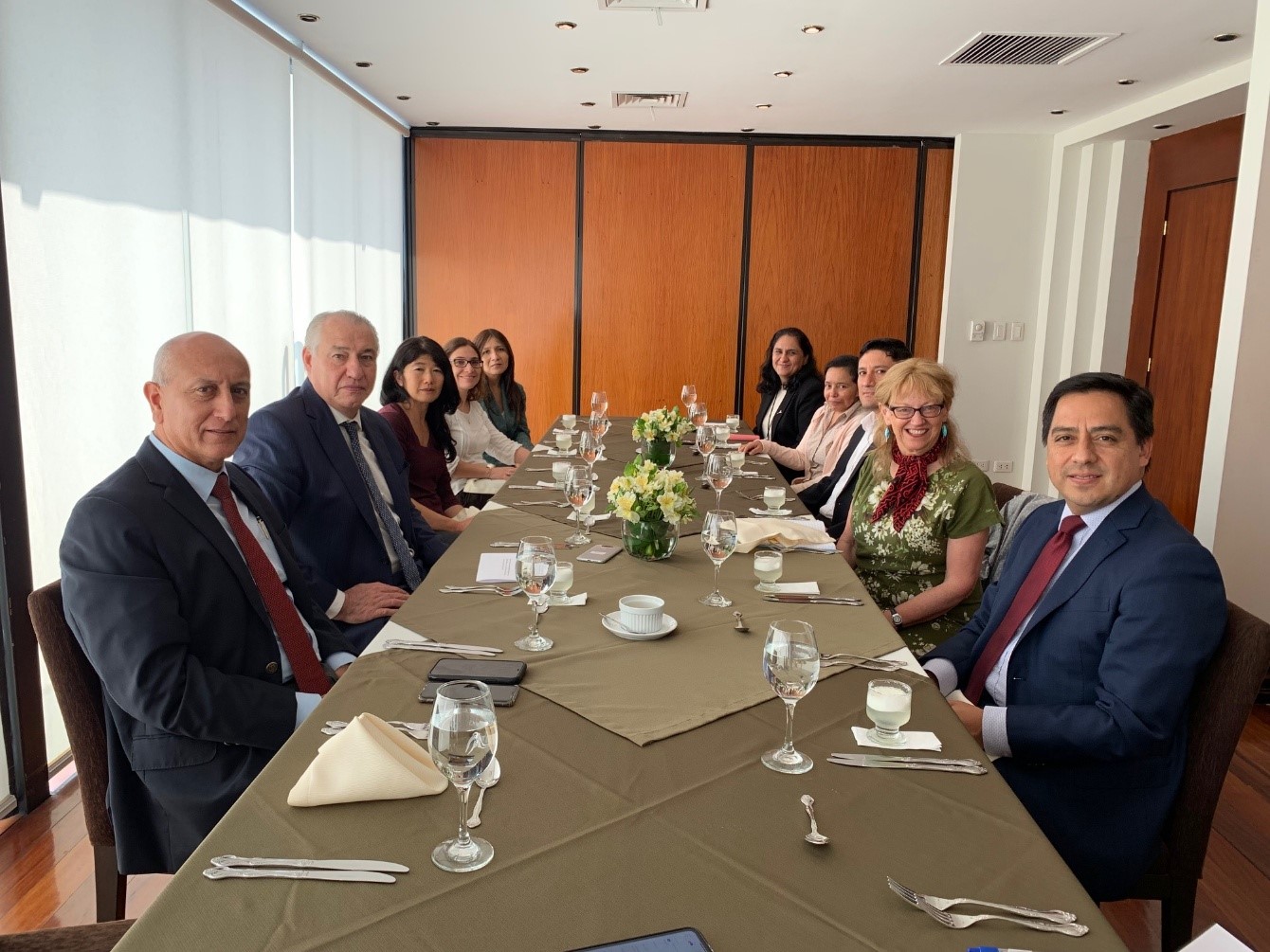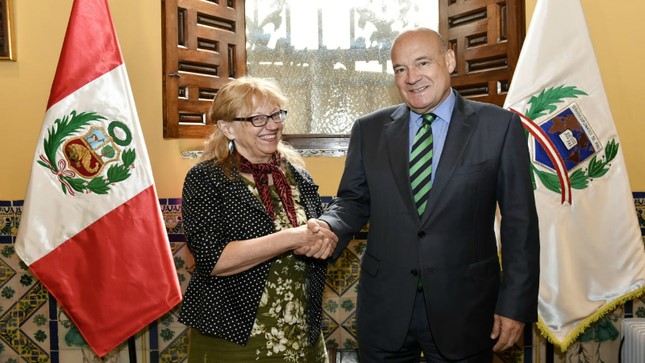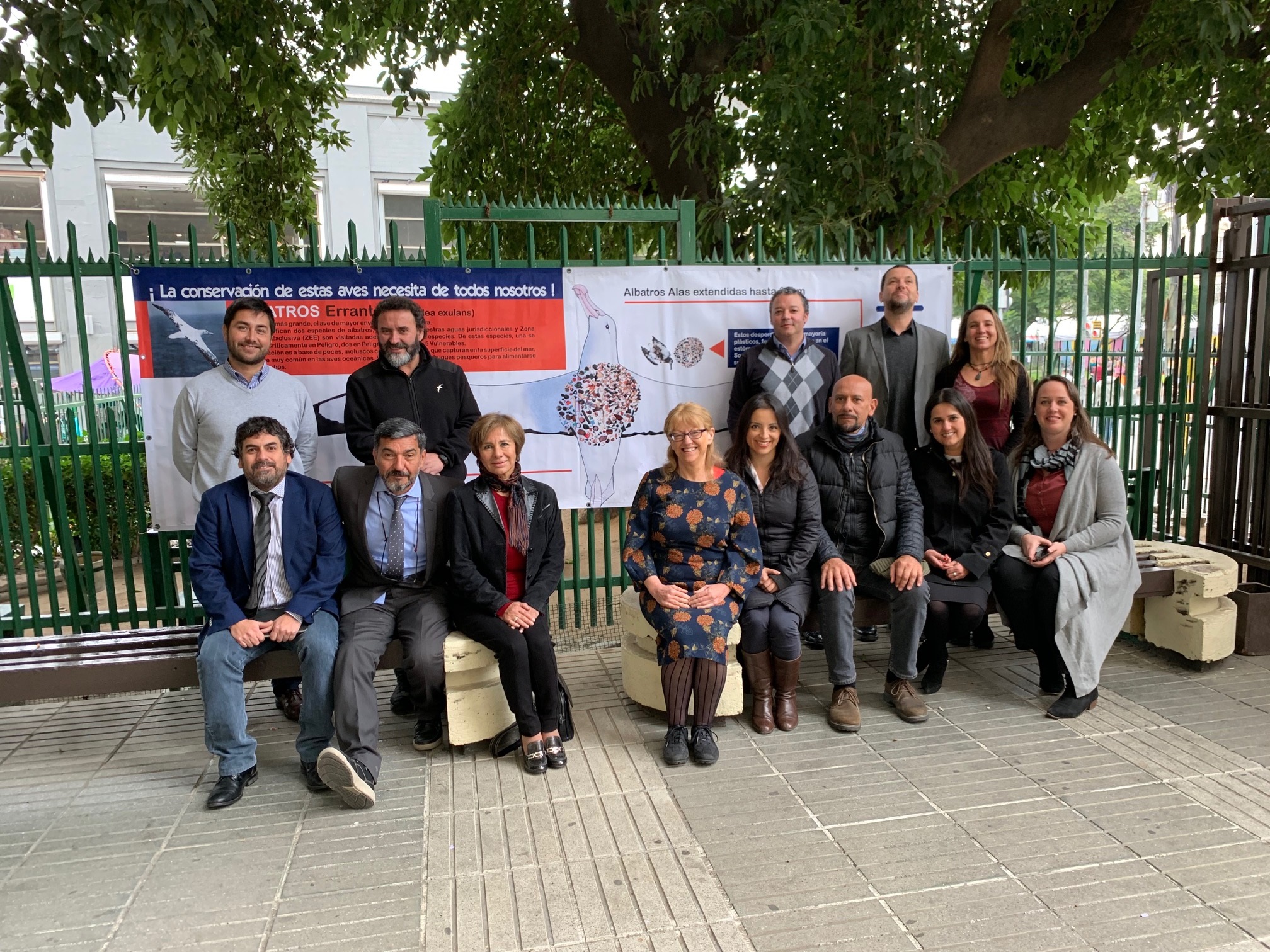ACAP Executive Secretary Christine Bogle is fluent in the Agreement’s three official languages of English, French and Spanish. Given that six of the 13 ACAP Parties are Spanish-speaking this facility greatly aids communication between the ACAP’s Secretariat in Australia and ACAP National Contact Points and Advisory Committee Members (as well as others) in South America, where five of the six Parties have Spanish as a home language (the sixth, Brazil, speaks Portuguese).
Following the Eleventh Meeting of the ACAP Advisory Committee (AC11), hosted by Brazil this May, Christine Bogle travelled on to make liaison visits to Peru, Ecuador and Chile, before returning to the Secretariat’s offices in Hobart. Extracts adapted from her report follow.
I visited Lima (Peru), Guayaquil (Ecuador) and Valparaíso (Chile); in each country my programme was organised by the representative to ACAP’s Advisory Committee and involved meetings with a range of government agencies involved in work related to ACAP objectives. In Ecuador and Chile NGO representatives were also present at meetings. The visits enabled me to outline ACAP’s work, priorities and systems as well as to discuss each country’s priorities for their ACAP-related commitments. I also learned about the roles and responsibilities of the different agencies, and their priorities for their ongoing relationship with ACAP, as well as cooperation amongst the different agencies and with their neighbouring countries. A positive outcome was that the inter-agency discussions foreshadowed ongoing enhanced cooperation between the different institutions in each country.
In each country a presentation was made in Spanish about ACAP’s history, structure and priorities, as well as a brief outline of the key outcomes from the recent AC11 and working group meetings. Presentations were then made by the other participants describing their work and priorities, followed by discussions as briefly summarized below.
Peru
Key outcomes from discussions organised by Peru’s Advisory Committee Member Elisa Goya were an agreement to set up an inter-departmental task force to implement the binational (Peru/Ecuador) Plan of Action for the Critically Endangered Waved Albatross Phoebastria irrorata (subsequently its first meeting has taken place) and a decision to produce a National Plan of Action – Seabirds for the country.

Lunch at the Peruvian Ministry of Foreign Affairs
Left from front: José Romero (General Director, Control and Supervision, Ministry of Production, PRODUCE); Ambassador Roberto Seminario (Head, General Bureau of Sovereignty, Borders and Antarctic Affairs, Ministry of Foreign Affairs); Elisa Goya (Peruvian Marine Research Institute, IMARPE); Vanessa Bachmann (IMARPE); Sara Dueñas (Ministry of Foreign Affairs).
Right from front: Andrés Garrido (Director, Bureau of Maritime Affairs, Ministry of Foreign Affairs); Christine Bogle (ACAP Executive Secretary); Percy Gallegos (Ministry of Production); Doris Rodríguez (National Forest and Wildlife Service, SERFOR); Frida Rodríguez (Environmental Ministry)

Visit to the Ministry: Christine Bogle, ACAP Executive Secretary shakes hands with Ambassador Jose Antonio Pomareda, Peruvian Vice Minister of Foreign Affairs; the Vice Minister reaffirmed the commitment of Peru to continue working on the protection of coastal marine areas within the framework of ACAP
Ecuador
Meetings in Ecuador, arranged by ACAP Advisory Committee Member Caroline Icaza, revealed a group of enthusiastic and hard- working officials who had a number of projects in mind, including some falling within the Waved Albatross Plan of Action. It was suggested that key priorities could be set with ACAP’s aid. Ecuador’s offer to host AC12 next year was also discussed.

ACAP's Executive Secretary meets with officials in Ecuador
Standing from left: Julia Cordero, Dirección Provincial de Ambiente de Manabí; Christian Sevilla, Especialista en Conservacion y Restauracion de Ecosistemas Insulares, Parque Nacional Galapagos; Vicente Zaval, Subsecretario de Gestión Marina y Costera; Christine Bogle, ACAP Executive Secretary; Verónica Córdova, Directora de Normativas y Proyectos Marinos y Costeros; Patricia Rosero, Especialista en Gestión Marina y Costera; Rubén Alemán, Veterinario del Parque Nacional Machalilla
Kneeling from left: Yolanda Bazurto, Especialista en áreas protegidas del Área Nacional de Recreación Playas de Villamil; Xavier Santillán, Especialista en Normativas y Proyectos de la Subsecretaría de Gestión Marina y Costera
Chile
Chile’s host was ACAP Advisory Committee Member, Marcelo Garcia. Chile reported on its cooperation with New Zealand over the globally Endangered Antipodean Albatross Diomedea antipodensis and its recent decision to place cameras on both its industrial and artisanal fishing vessels.

In front of a Wandering Albatross banner outside the Subsecretaría de Pesca (SUBPESCA) Offices in Valparaíso, Chile
Back row from left: Alan Gomez, Profesional pesquerías Demersales, Subsecretaria de Pesca; Luis Adasme, Profesional del Instituto de Fomento Pesquero, IFOP); Luis Cocas M., Profesional Descarte y Programa de Cámaras a bordo de la Subsecretaria de Pesca; Jorge Guerra M., Profesional asuntos mamíferos marinos de la Subsecretaria de Pesca; Verónica López, Oikonos
Front row from left: Javier Rivera, Jefe, Departamento de Pesquerías Subsecretaria de Pesca y Acuicultura; Marcelo Garcia Alvarado, Chile's ACAP Advisory Committee Member, Subsecretaría de Pesca; Nancy Cespedes, Jefa Departamento de Recursos Naturales Ministerio de relaciones Exteriores; Christine Bogle, ACAP Executive Secretary; Sandra Diaz, Planes de Recuperación conservación y gestión de especies amenazadas, Ministerio del Medio Ambiente; Mauricio Ulloa, Encargado de Rescate de Fauna marina del Servicio Nacional de Pesca y Acuicultura; Katherine Bernal, Asuntos internacionales, Subsecretaria de Pesca y Acuicultura; Karin Mundnich, ACAP National Contact for Chile, Unidad de Asuntos Internacionales, Subsecretaria de Pesca
With thanks to Marcelo Garcia Alvarado and Caroline Icaza Galarza.
John Cooper, ACAP Information Officer, 02 August 2019, updated 03 & 05 August 2019

 English
English  Français
Français  Español
Español